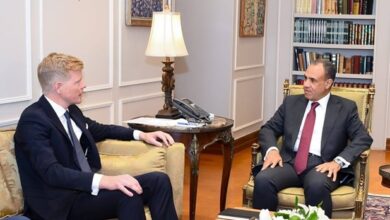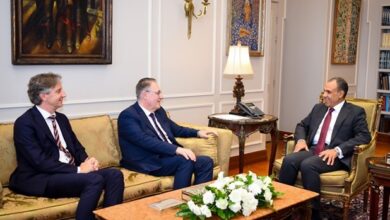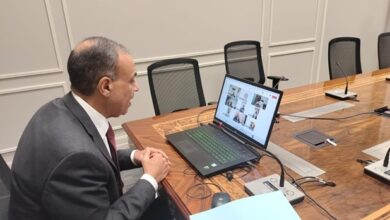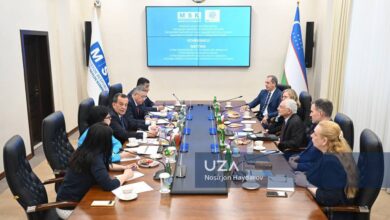First Day of APK Session Focuses on Interethnic Unity Amid Global Challenges
By: Hazem Abdo
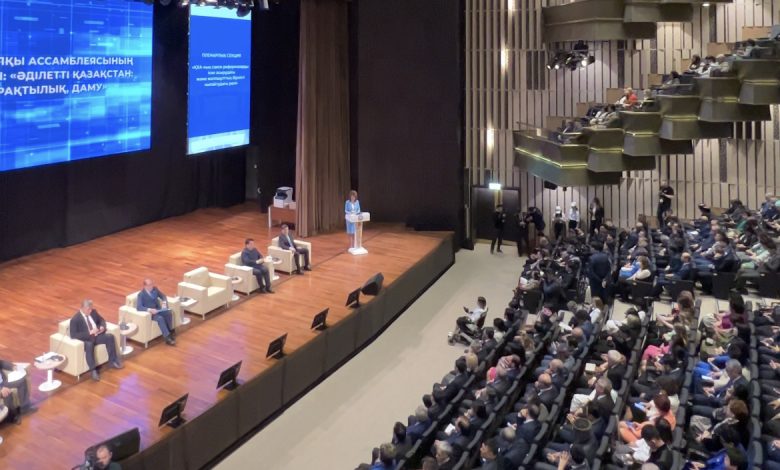
The Assembly of the People of Kazakhstan (APK) is one of the most important organizations in ensuring the country’s stability, said Deputy Chief of Staff of the President Aida Balayeva during the opening of the APK’s 32nd session at Nazarbayev University on April 26.
32nd Session of Assembly of People of Kazakhstan Kicks-Off in Astana on April 26. Photo credti: Assembly of People of Kazakhstan
APK, an advisory body under the President of Kazakhstan, was founded in 1995 to promote and support harmonious interethnic relations. It comprises representatives of over around ethnic groups in Kazakhstan.
The first day of the 32nd session of the APK focused on the concept of a Just Kazakhstan, with unity and stability at the core of the country’s development. Senior officials, APK members, representatives of religious associations, non-governmental organizations, and the diplomatic corps, chairpersons of national and regional ethnocultural associations, attended the event.
According to Balayeva, the assembly is one of the key driving factors of change, with other state bodies representing reform values. It is regulated by constitutional law, reflecting its special status and significance.
“The assembly structures held over 3,000 expert discussions, dialogue platforms, meetings, and 35 information campaigns to implement political reforms. Many of them have already produced tangible results. I am very pleased that the assembly, which has acquired new parliamentary representation, has not shied away from the transformations,” she added.
In her address, Balayeva reiterated that all reforms should be carried out not for the sake of the reforms but for the benefit of the people.

Natalia Dementieva, a member of the Mazhilis, the lower chamber of the Kazakh Parliament, and an ethnic Russian fluent in Kazakh, said the Kazakh citizens have reevaluated the meaning of peace and stability after the January events in 2022 and the tragic conflicts in neighboring countries.
“Stability, tolerance, and interethnic harmony have now taken on a new meaning and are being more appreciated,” she said speaking on the margins of the session.
Dementieva said she believes the APK is a unique institution that many countries try to adopt into their sociopolitical structures using Kazakhstan’s example.
“This indicates that we are setting a good example for the rest of the world to follow. Foreign journalists are amazed that Kazakhstan has managed to maintain peace and interethnic accord despite so many ethnic groups coexisting in our country,” she said.
According to Dementieva, every member of the Kazakh society, regardless of ethnicity, should strive to preserve the country’s stability and unity.
“Everyone on their level should offer not just a viable contribution, but try their utmost to safeguard stability and harmony, as socio-economic and political progress is irrelevant without peace. The country’s peace and stability is paramount. Nothing is impossible if there is peace,” she said.
Evgeny Bolgert, a member of the Senate, the upper house of the Kazakh Parliament, and an ethnic German, has been a member of the assembly since high school.
“I have been an active member of the German youth organization in Astana since high school. The assembly works in such a way that it brings together all ethnocultural organizations under its umbrella. This is how I came to be a member of the assembly,” he said talking to reporters in between sessions.

Bolgert currently represents the interests of ethnic Germans in Kazakhstan on a high political level.
In January this year, the APK proposed Bolgert, along with assembly members from other ethnic groups, for the role of the Senate deputies. He said this demonstrates the importance of interethnic issues to the Kazakh society on a legislative level, underscoring multi-ethnic diversity in the Kazakh Parliament.
He said the APK members can be effective in increasing the country’s wealth. Ethnocultural societies can play a significant role as an economic bridge between Kazakhstan and the nations of their ethnicity.
“We brought together over 60 Kazakh entrepreneurs who are ethnic Germans and organized a business club that works through the Kazakh German Business Council and the Atameken National Chamber of Entrepreneurs. As such, we are acting not only as a cultural bridge between countries but also as an economic bridge,” he said.
While traveling across the world and between Germany and Kazakhstan, Bolgert has observed that the Kazakh model of interethnic harmony proves to be a feasible mechanism that produces tangible outcomes. He also said many countries try to implement it in their own societies.
“In today’s world, interethnic harmony is not only necessary but also vital. I travel abroad frequently. If we take Germany as an example, many refugees from different cultures came to the country simultaneously. This was new for the German society. In such cases, it is important to figure out how to establish a working ethnic interaction policy. I think our country’s model has proved viable. It is being enacted in other countries. The assembly is a unique, efficient organization that works to strengthen our collective unity,” he concluded.
The plenary session of the assembly will take place on April 27 at Astana’s Palace of Peace and Harmony under the chairmanship of President Kassym-Jomart Tokayev.
Astanatimes.



